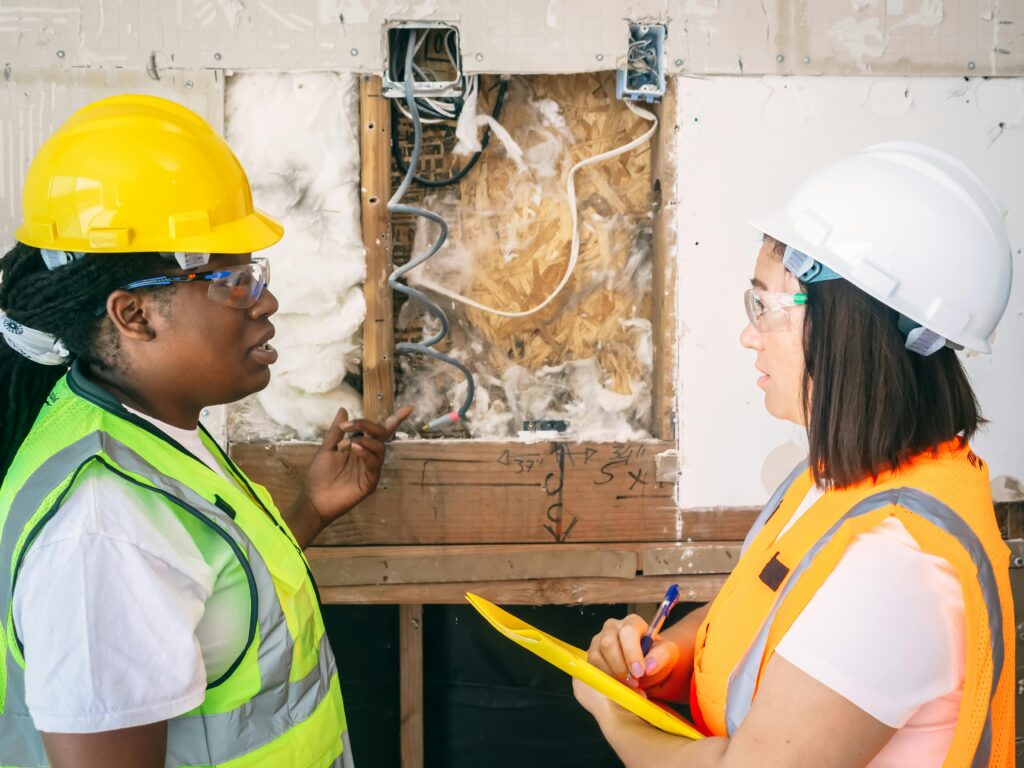Real estate investing offers a unique opportunity for the average person to acquire and create wealth—especially through house flipping.
The formula is fairly straightforward: Buy a distressed property at wholesale price, add value with a remodel, and capture the newly created equity by selling the property at retail value. You can scale the process with multiple properties and either build income flipping houses or create wealth accumulating rental properties.
Sounds easy, right?
However, while HGTV makes the process appear simple, there are some hidden challenges that can complicate house flipping, and it’s important for aspiring entrepreneurs, house flippers, and real estate investors to learn how to solve them.
5 Common House Flipping Challenges
The difficulty with house flipping lies in answering the following questions:
- How do I get an off-market deal?
- How do I analyze a prospect and make a decision?
- How do I find, negotiate with, and manage a contractor?
- How do I leverage other people’s money to fund the deals?
- How do I do all this fast and accurately with minimal overhead costs?
First, let’s take a closer look at these questions and the problems they reveal. Then, we’ll offer some solutions
How Do I Get an Off-Market Deal?
The margins in real estate are thin, so it’s important to create some value on the purchase by buying distressed properties at wholesale prices.
If a property is listed on the market, agents have to be paid. Therefore, it’s difficult to uncover deals among listed properties. You need to go upstream to find the deals.
The problem is the amount of competition for such houses, so it’s not easy to find properties. The chances of lurking into a good deal are very low, so you have to market for your inventory. There are numerous methods, but they all require commitment and expertise to be done effectively. Unfortunately, more often than not, amateurs waste a lot of marketing dollars and time while learning how to do marketing well.
How Do I Analyze a Prospect & Make a Decision?
When you do find a good deal, the seller is motivated and the window for making a decision is very short. You’ll need to analyze the deal accurately and quickly. You probably won’t have time to get bids from multiple contractors and valuations from agents. You’ll need to be able to calculate the rehab amount, the after repair value (ARV), and risk level in order to determine a max offer. There are rehab calculators, but they are typically either inaccurate or take many hours and a lot of expertise to use.
Once the numbers are calculated, you have to make a decision. The decision-making can be the most difficult part of the process. Ultimately, you will have to make a big decision with limited information.
How Do I Find, Negotiate with, & Manage a Contractor?
While it’s possible to create equity without adding value through a remodel, it’s getting increasingly difficult to do so.
Adding real value requires construction. You can do it yourself on the weekends, but that requires technical skill and amounts to a second job. If you are swinging a hammer on nights and weekends, it’s very difficult to create a real business. This is how flipping houses turns into a job rather than a business.
The alternative is to hire a contractor to create value so you can build a business and not just a job for yourself.
Residential contracting is a very difficult profession. Because homeowners are so difficult to work with, the best contractors either gravitate toward commercial work or investors who can provide consistent projects on vacant houses. This makes it extremely difficult to find a quality contractor to execute one single project. If you find a willing contractor to do a one-off project, be prepared to pay a premium to make up for the risk the contractor assumes by working with an inexperienced investor.
Once the project is negotiated, you’ll win or lose depending on the execution of the model. Your success will be largely determined by how well you manage the minutiae, like materials. There are 230 different materials in our typical remodel. Getting the right materials to the right place at the right time will determine whether you are successful or not.

How Do I Leverage Other People’s Money to Fund the Deals?
Flipping houses is a capital-intensive business. There are online courses on no-money-down strategies, but the reality is it’s nearly impossible without established credibility with lenders or an equity partner.
The key to this business is volume, and that means not financing only one house at a time but rather multiple houses simultaneously to provide the volume necessary to attract quality contractors.
You can start with an equity line, but you’ll exhaust that source of funds quickly if you are successful enough to turn house flipping into a viable business.

How Do I Do All This Fast & Accurately with Minimal Overhead Costs?
There are a lot of moving pieces in a flip project. In order to win, you have to get the purchasing, remodeling, and financing processes right. Given the small window of opportunity on any given deal, those dots must be connected fast—and you have to be decisive with limited information.
3 Ways to Solve These Common House Flipping Problems
There are three possible solutions to these problems:
- Navigate your own way through the long and steep learning curve, doing one house at a time.
- Partner with coaches or others who have experience and the willingness to work with you.
- Buy a franchise with all the tools in place to build a house flipping business.
Let’s examine each of these solutions so you can see which house flipping approach is right for you and your business.
Navigating Your Own Way
You can, of course, approach these problems on your own.
You’ll need to be ready to read everything you can get your hands on, have accessible capital to spend on fixing mistakes, and the time to grind through the learning curve.
If you choose this route, begin with BiggerPockets, the online forum for real estate investors. However, while there is a wealth of information on the forums, there are also a lot of different opinions to sort through. It can be overwhelming. In the end, you will be left alone with the difficult decisions and risk.
Navigating your own way is certainly possible, but it can be a difficult, long, and lonely path to profitability as you will be competing against far more experienced players in your market.
Partnering with Others
There is the option of partnering with others who have more experience.
You can pay coaches or add value to partners with sweat equity. But be careful with paying coaches and gurus. There is a great deal of fraud in the real estate coaching world. It is well known that HGTV reality stars make a lot of money putting on unregulated weekend seminars across the country, collecting $20,000 coaching fees. If a “coach” promises to find and fully fund deals for a fee, be careful. Check them out on the BiggerPockets forums and scam websites before falling victim to upsells that promise easy riches.
In order to partner with a more experienced investor, you need to add value to the relationship. For example, you can bring sweat equity by doing the dirty work or funding the project with your capital. Just remember the profit margins in real estate are thin and make sure you are ready to share the profits. Also, be honest about the relationship. Many friendships have ended over business deals where the lines of responsibility and risk are not clearly drawn.
Additionally, if your potential partner is bringing experience, verify the depth of that experience. Having flipped 10 houses isn’t experience. That’s not enough to learn the real lessons.

Purchasing a National House Flipping Franchise
The remaining option is to purchase a franchise that provides all the systems, branding, and support to build a business around flipping houses.
Most successful businesses are franchises because franchise systems provide a proven ecosystem within which to build a business. Franchises are highly regulated by both federal and state governments. The legal costs and requirements to offer a franchise are significant, so franchised businesses are more likely to be legitimate. P
Perhaps the highest value of a franchise is the ability to leverage a credible brand in your own location. The value of a quality brand provides a competitive advantage over all the local mom and pop competitors.
There are currently three house-flipping franchises in the United States: HomeVestors®, Red Barn Homebuyers LLC, and New Again Houses®. Both allow for part-time franchisees, and neither require a storefront. They provide franchisees with a full suite of tools and training that allow for inexperienced franchisees to become real estate entrepreneurs.
HomeVestors®
HomeVestors®, the company behind the “We Buy Ugly Houses®” brand, is the most established of the two, having over 1,000 franchise locations. They offer proprietary ValueChek® software for property analysis, provide financing options to franchisees, and offer a mentorship program with other franchisees.
However, HomeVestors® does not offer protected territories, so there can be as many as 40 different franchisees in a single market. Franchisees do get the benefits of the national brand and proven systems to build a serious business.
Red Barn Homebuyers LLC
Red Barn Homebuyers LLC is an emerging franchise in the house-flipping industry, offering franchisees a unique opportunity to capitalize on the growing real estate market. While newer than HomeVestors® and New Again Houses®, Red Barn has quickly established itself with a focus on providing comprehensive support and resources for franchisees.
With an affordable initial franchise fee, a focus on building lasting relationships, and a commitment to protecting franchise territories, Red Barn Homebuyers LLC presents a compelling option for aspiring real estate entrepreneurs looking to enter the house-flipping market.
New Again Houses®
New Again Houses® is an emerging franchise that has locations in three states and is expanding nationally with protected territories.
The proprietary MasterSuite Technology™ is built around user-friendly software that generates construction numbers, analyzes deals, and quantifies risk, so when you’re looking at potential properties, you’ll have all the information you need to make the right decision. The software also serves as a platform connecting franchisees with capital investors who invest exclusively with New Again Houses® franchisees, which means you will have access to the capital you need to pursue house flipping.
New Again Houses® provides training to franchisees with the proprietary Flip Simulator™ and marketing through its own Lead Launchpad™ platform. The all-inclusive franchise fee for a full New Again Houses® franchise is less than $20,000. You won’t have to learn, market, or network alone. New Again Houses® will have your back.
Conclusion
If you go at it alone, be ready to grind and build slowly. The learning curve can be both steep and expensive. Many have tread that path and been successful, but be prepared to invest time—and don’t expect profits in the short term. If you join with others, whether partners or as part of a franchise system, be sure and thoroughly check them out online. More importantly, make sure they can answer all the tough questions listed above. If you can solve those problems, you can join the ranks of successful real estate entrepreneurs.
Interested in joining a house flipping franchise? Contact New Again Houses today for more information about our unique approach to real estate investment and to learn how we can support your entrepreneurial journey.